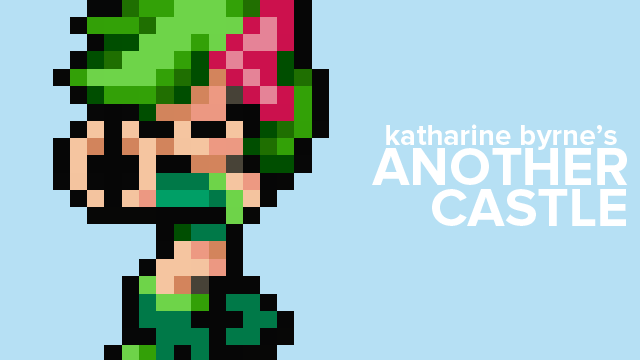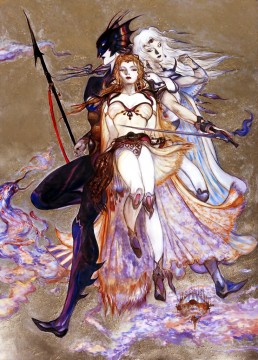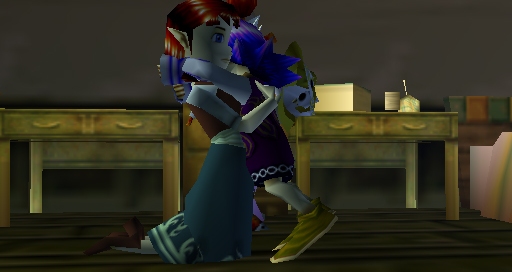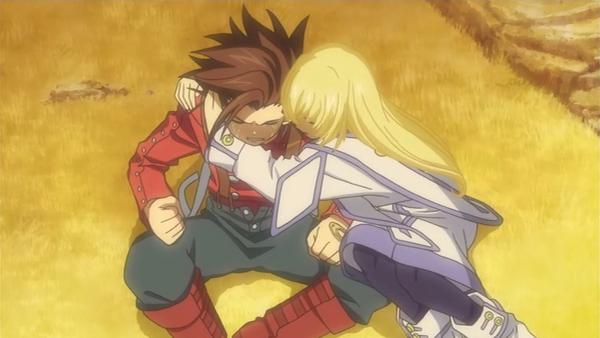 There’s trouble in paradise according to Neil Druckmann, creative director of Naughty Dog– story-telling in video games is dying a slow and painful death. But The Last of Us, the studio’s upcoming PlayStation 3 exclusive, is set to change all that:
There’s trouble in paradise according to Neil Druckmann, creative director of Naughty Dog– story-telling in video games is dying a slow and painful death. But The Last of Us, the studio’s upcoming PlayStation 3 exclusive, is set to change all that:
“This is going to sound corny, and it might not appeal to gamers, but I would say it’s a love story,” said Druckmann when the game was first revealed last December. “It’s not a romantic love story, it’s a love story about a father-daughter-like relationship. We approached this genre because we felt no-one is getting to the heart of it. It tells you something about the human condition– that’s what you want to do as a storyteller. We’re not saying every game needs a strong, compelling and dramatic story, but if you are going to make a narrative-based game then you better learn the craft.”
And to some extent, he’s right. There have been few honest and well-executed attempts at getting to the heart of what love is really about in games, romantic or otherwise, and Nintendo is perhaps the biggest offender of them all. Mario and Peach (and Link and Zelda, for that matter) may well be classed as Nintendo’s greatest lovebirds, but when their “relationship” ultimately boils down to nothing more than promises of cake, they can’t really compare to other video game couples like Tidus and Yuna, Ico and Yorda, or Snake and Meryl (you know, before he got really old). No matter which way you try to spin it, love just doesn’t seem to be something that comes very easily to Nintendo.
In their defence, it’s a difficult emotion to get behind at the best of times, especially since any deep exploration of its themes and consequences is likely to lead to a game onto a much more mature playing field– and we all know that’s something that doesn’t come very easily to Nintendo either. Wii U may be about to change this for the better, but I still think it will be quite some time before we see games like Catherine making their way onto a Nintendo console. But while the big N seems almost averse to touching the L word, there have been a handful of games over the years who have dared to be different, and considering it’s Valentine’s Day, now couldn’t be a better time to take a look at them.
 Starting with Final Fantasy IV, here’s a game which delves deep into the matters of the heart. Underneath its traditional RPG trappings, it explores love from a variety of different angles, from the first flushes of mutual attraction between Edge and Rydia to the ongoing love triangle between Kain, Cecil and Rosa.
Starting with Final Fantasy IV, here’s a game which delves deep into the matters of the heart. Underneath its traditional RPG trappings, it explores love from a variety of different angles, from the first flushes of mutual attraction between Edge and Rydia to the ongoing love triangle between Kain, Cecil and Rosa.
But Final Fantasy IV isn’t only concerned with romantic love– at the start of the game, for example, we find Cecil deeply conflicted as he tries to reconcile his duty to the King of Baron with his own moral compass. He looks up to and admires the king like a father, having been brought up by him from an early age, but Cecil believes himself to be a coward because he can’t defy his king’s orders to slaughter hundreds of innocent people for the sake of a crystal.
Yet it’s not just his own indecision that Cecil has to contend with. He also fears that his choice to become a dark knight is slowly robbing him of his humanity, and that soon he won’t have a shred of light or goodness left in him. He’s completely trapped by his love for king and country, so much so that he’s not only willing to risk his life in battle, but also his very soul as he mires himself deeper and deeper in obeying orders he knows to be wrong. He even seems willing to sacrifice his relationship with Rosa, and it begs the question whether this is really the right kind of love a son should bear for his father, or a soldier should bear for his king.
It’s only when he’s faced with killing a helpless Rydia that Cecil finally comes to his senses. He vows to stand up against his king and rid himself of his darkness, but his dragoon companion Kain goes on to represent everything that Cecil could have become had he succumbed to his fate. Kain may not be a dark knight, but he becomes just as heartless when he loses his will to the usurper Golbez, and it’s only Kain’s secret affection for Rosa which stops him from spiralling completely out of control.
Final Fantasy IV also examines what happens when love goes wrong, and in the case of Edward and Tellah, we see the devastating effects of a loved one’s death. Tellah is furious that Edward eloped with his daughter, Anna, but when she’s killed in the raid on Damcyan, his hatred begins to consume him entirely. He’s even ready to fight Edward to the death, prompting his famous “spoony bard” curse, but Anna spends her dying breath telling her father just how much she loves the gentle prince. Out of respect he makes a grudging peace with Edward, however the fury of his grief persists right up until the moment of his death. In one last desperate attempt to avenge his daughter, he risks his own life by casting Meteor in a fight with Golbez, the true author of Anna’s death, yet even Meteor isn’t enough to bring down the usurper. In a Final Fantasy first, Tellah fails and dies an angry, vengeful man.
It’s a pitiful end for such a character, but Edward doesn’t make the same mistake. He too is equally devastated by Anna’s death– he even breaks down in tears when she dies– but unlike Tellah, he learns to how to comes to term with his loss. His love for Anna and his determination to carry on allows him to grow in confidence as the story progresses, and he does his best to aid his friends even when he’s bedridden after being shipwrecked. Whereas Tellah only found comfort in revenge, Edward discovers his inner strength.

But Tellah’s rage against the dying light is nothing compared to the story of Anju and Kafei from The Legend of Zelda: Majora’s Mask. Due to be married the day the moon falls, Kafei mysteriously goes missing a month beforehand, and it’s only through a series of timid and secretive letters that Link eventually discovers that Kafei has been cursed and turned into a child by the Skull Kid. But that’s not the reason why he’s hiding out in the back streets of Clock Town. Rather, his greatest regret stems from the loss of his wedding mask that was stolen by Sakon. It’s not vanity which keeps Kafei from his bride-to-be– it’s the shame of not being able to fulfil his promise.
Yet the true tragedy of their story, particularly if each version of Termina carries on after the moon falls, is that they’re both entirely dependant on Link’s help. Anju is too afraid to send Kafei a reply in the post by herself, and Kafei can’t win back his mask from Sakon’s hideout without a partner to help him through the thief’s traps. Moreover, if Link and Kafei fail at the final hurdle, Anju is still left waiting in her room at the Stock Pot Inn, her belief in her fiancée unfazed and undeterred, even as the world approaches the brink of destruction. Even more tragic is if Link forgets to give Anju Kafei’s pendant of memories and still goes to help him rescue his mask. In an almost Shakespearean twist of fate, Kafei will race back to Clock Town only to find Anju has fled to Romani Ranch.
Provided all goes well though, their steadfast faith in one another is really what makes their entire sidequest and subsequent reunion so touching. You’re waiting right down to the wire, the clock ticking ever closer to the moon’s terrifying apocalypse, and you almost think Kafei won’t make it in time. Your faith is tested alongside Anju’s, but as the door creaks open with only 90 seconds to go your patience is finally rewarded with one of the most tender scenes the Zelda franchise has ever seen. Yet even then their happy ending still hinges on you defeating Majora, and if Link hasn’t rescued all four giants yet then their final words to you are perhaps the saddest and most heart-breaking in the entire game.

Tales of Symphonia, on the other hand, explores the selfishness of love and challenges the player with its themes of Utilitarianism. Here, the story revolves around Lloyd and his friends accompanying Sylvarant’s Chosen One, Colette, on her pilgrimage to become an angel and regenerate the world. Unbeknownst to Lloyd though, Colette must sacrifice her own soul and memory to complete the transformation. Naturally, when Lloyd learns the truth, he wants nothing more than to save her from her fate; but when the whole world is relying on her to give up her life so that they might have a chance of living theirs, he’s completely torn between his own wishes and those of Sylvarant itself.
Complicating matters further, however, is the existence of Tethe’alla, a parallel world to Sylvarant that also draws its prosperity from the same source of mana. When one world flourishes, the other falls into decline, and Lloyd and his friends soon find themselves in an even more difficult position as they near the final mana seal. It was hard enough coming to terms with letting Colette sacrifice herself for the greater good of Sylvarant, but what happens when there’s a whole other world hanging in the balance as well? Who falls under the label of “the greater good” now? For Lloyd, the answer is simple; he choses Colette and turns his back on his homeworld, and flees to Tethe’alla to try and find a way to regain her soul.
Of course, it wouldn’t be a true JRPG if he didn’t end up saving both worlds as well at the same time, but his initial choice of Colette isn’t actually too far removed from the choice made by the great hero Mithos, the game’s main villain, nearly 4000 years earlier. He was the one who originally split the worlds in two to prevent them from exploiting what little mana remained to them, but in doing so he also lost his sister, Martel. Instead of seeking to establish a lasting peace, Mithos’s heroism ultimately grew warped and twisted as he became obsessed with reviving his sister. But while he may have caused countless deaths and inflicted needless destruction in the process, he too believed he acted out of love and “for the greater good”. Had Lloyd been less fortunate in finding a rather convenient way to save everyone and everything he held dear, it’s not unreasonable to suggest that Lloyd’s love of Colette may have resulted in a similar fate.
But these three titles are just the tip of the iceberg when it comes to talking about love in games (albeit admittedly a rather small one). It may not be a very common sight on today’s Nintendo consoles, but it’s still very much alive out there if you know where to look. After all, love isn’t just about “corny” relationships and sappy declarations of undying affection– it goes, quite literally, to the heart of who we are and how we treat those around us, and it’s the shameful, messy, contradictory nature of it which makes it so endlessly fascinating. Naughty Dog’s The Last of Us may well take it to next level this generation, but if the three old geezers above can do it, then the future of love in Nintendo games can only get better and more sophisticated with time. Skyward Sword has already taken the plunge with Link and Zelda, so who knows where cupid’s arrow might fall next?




 ShareThis
ShareThis






